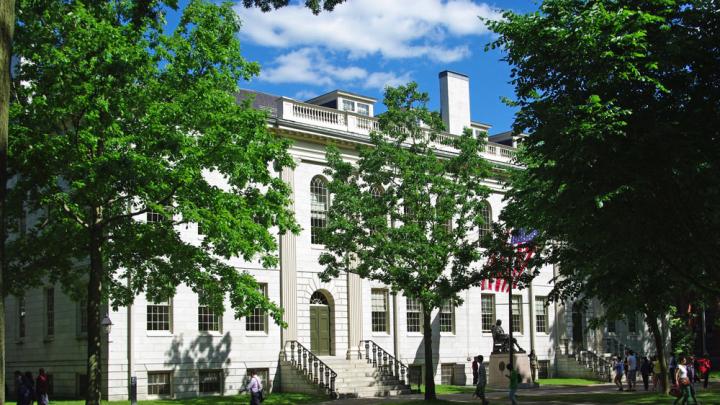Following a year of sharp debate within the Faculty of Arts and Sciences (FAS) over the proposed sanctioning of undergraduates who join final clubs or other unrecognized single-gender social organizations (USGSOs), the divisions now appear likely to spread into the new academic year. Today, as the members of the class of 2021—the first cohort to be subjected to the sanctions policy—arrive on campus, these developments highlight the continuing controversy:
- In July, the committee co-chaired by Harvard College dean Rakesh Khurana, who has led the effort to curtail the USGSOs, proposed that memberships in such organizations be prohibited outright, beginning with the cohort of students who will enroll in August 2018. Last week, the committee invited FAS members to drop-in faculty discussions, attended by some members of the committee; those meetings are scheduled for September 11, 14, and 15, and are supplemented by an email tool and online forum. All the comment and possible revisions of the report are proceeding on a fast track, since the report is to be revised in final form by September 25. The preliminary report suggested that final action would be taken by President Drew Faust, rather than by FAS.
- On August 21, perhaps responding in part to that last point, Gordon McKay professor of computer science Harry R. Lewis introduced a motion that he and other FAS members wish to have on the agenda for the October 3 faculty meeting. Lewis led an effort during the last academic year to undo the proposed sanctions; after two faculty meetings devoted to that subject, he stood down while Khurana's review committee examined the sanctions (the committee that has now proposed the outright ban on student membership in final clubs and similar entities). The motion reads, “Harvard College shall not discipline, penalize, or otherwise sanction students for joining, or affiliating with, any lawful organization, political party, or social, political, or other affinity group.”
With that motion—supported by 21 faculty members, including Lewis, up from a dozen for the motion introduced last year—the sponsors appear to have two aims:
- Substantively, they oppose the proposal to ban student membership in any kind of legal social (or other) organization, given students’ autonomy and freedom of assocation. As an explanatory note accompanying the motion observes, “This motion is intended to give students who join or form legal clubs or similar organizations the same protections that existing policies afford to all other students. It also secures their right of free association. If the policy is adopted, students could not, simply because of membership in a legal club, social or political organization, be sanctioned by the Administrative Board or by the Honor Council, or deprived of any academic or extracurricular opportunity or honor for which they would otherwise be eligible.”
- Administratively, the motion asserts the claim that the faculty, and not the College or University administration, is the locus for making policy pertaining to student conduct and discipline. Concerns about governance were a focus of debate last fall and winter, and the language in the new committee report suggesting that the decision on the proposed ban resides in Massachusetts Hall, not in the Faculty Room, is being challenged here.
Many opponents of the proposed sanctions for or ban on membership in USGSOs in fact say they deplore the social effects of final clubs on undergraduate life and culture. But they do not want policy made without formal faculty action, and they argue that the regulation of membership in legal social organizations, however undesirable, is a slippery slope toward regulating other kinds of behavior or memberships.
By advancing the motion, Lewis and colleagues are attempting to ensure that the full FAS goes on record on whatever policy may be adopted, through formal legislation. Suggesting the stakes, in his note to the Secretary of the faculty, Lewis advised that he would request a paper ballot on the motion, as opposed to the voice vote or roll call used for more routine measures.
The text of the motion and list of sponsors appear on Lewis’s blog.








